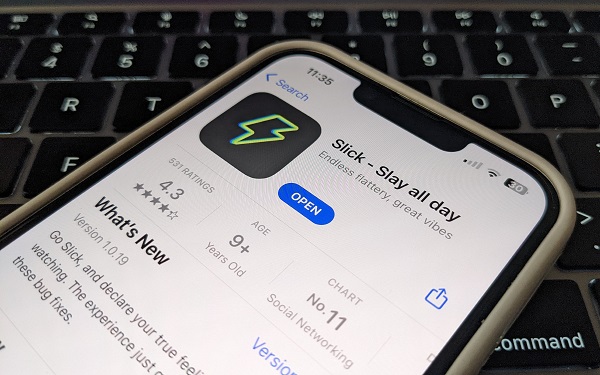
Emerging Indian social media app Slick left an internal database containing users’ personal information, including data of school-going children, publicly exposed to the internet for months.
Since at least December 11, a database containing full names, mobile numbers, dates of birth, and profile pictures of Slick users was left online without a password.
Bengaluru-based Slick launched in November 2022 by former Unacademy executive Archit Nanda after pivoting from crypto and closing his earlier startup CoinMint. His latest venture, Slick, is available on both Android and iOS and works similarly to Gas, a compliments-based app that is popular in the United States. The app also allows school and college students to talk with and about their friends anonymously.
Security researcher Anurag Sen from CloudDefense.ai found the exposed database, and asked TechCrunch for help in reporting the incident to the social media startup. Slick secured the database a short time after TechCrunch reached out on Friday.
Due to a misconfiguration, anyone familiar with the database’s IP address could access the database, which contained entries of over 153,000 users at the time it was secured. TechCrunch also found that the database could be accessed by an easy-to-guess subdomain on Slick’s main website.
The researcher also informed the India’s computer emergency response team, known as CERT-In, the country’s lead agency for handling cybersecurity issues.
Nanda confirmed to TechCrunch that Slick fixed the exposure. It’s not known if anyone other than Sen found the database before it was secured.
Slick attracted many younger users in India shortly after debuting last year. Earlier this month, Nanda took to Twitter to announce that the app crossed 100,000 downloads.
Google is rushing to take part in the sudden fervor for conversational AI, driven by the pervasive success of rival OpenAI’s ChatGPT. Bard, the company’s new AI experiment, aims to “combine the breadth of the world’s knowledge with the power, intelligence, and creativity of our large language models.” Not short on ambition, Google! The model, […]
A notable development for the fraught issue of cross-border data flows from the Organisation for Economic Co-operation and Development (OECD) Wednesday: After two years of closed-door discussions, the intergovernmental organization has adopted a declaration on government access to data held by private sector entities. The declaration, which has been adopted by the 38 OECD countries […]
Facebook announced today that it’s introducing more comment moderation tools and controls to make it easier for creators to manage conversations on the social network. Creators will now be able to search comments by keywords, including emojis, commenter names and dates, on their posts and take bulk actions, such as liking or hiding. These new […]
Leave a Reply